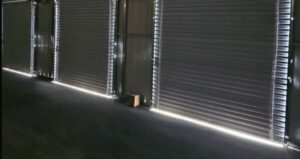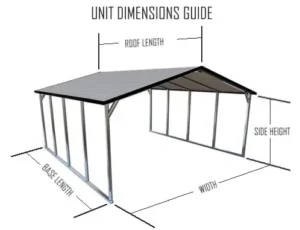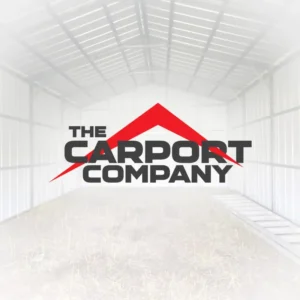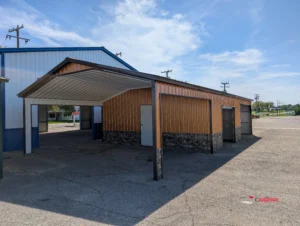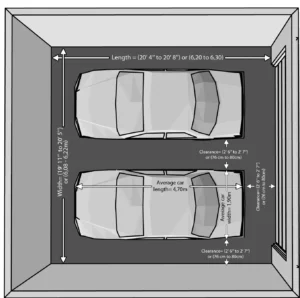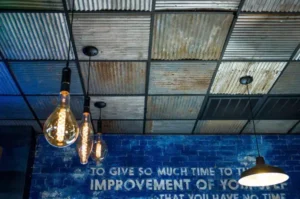11 Minute Read
Carport Insulation: Why It’s so Important + Tips & Tricks
Carport insulation is one of the most important additions you can purchase for your metal carport. Keep your vehicles in their original condition as long as possible.
In this article, we’ll be discussing why carport insulation is so important, what it costs to insulate a carport, and the different types of insulation available for carports.
If you’re looking to get a quote on a metal building or carport and compare the costs between different insulation types, please fill out the form on our Get Quote page. Thank you for choosing The Carport Co.!
Get Started
It’s easy and quick! Get a quote for a carport with insulation built to specs in your area!

Manufactured in the United States

Competitive Warranties

Licensed and Insured Installers

Outstanding Customer Service
Structures That Stand Strong™
Table of Contents
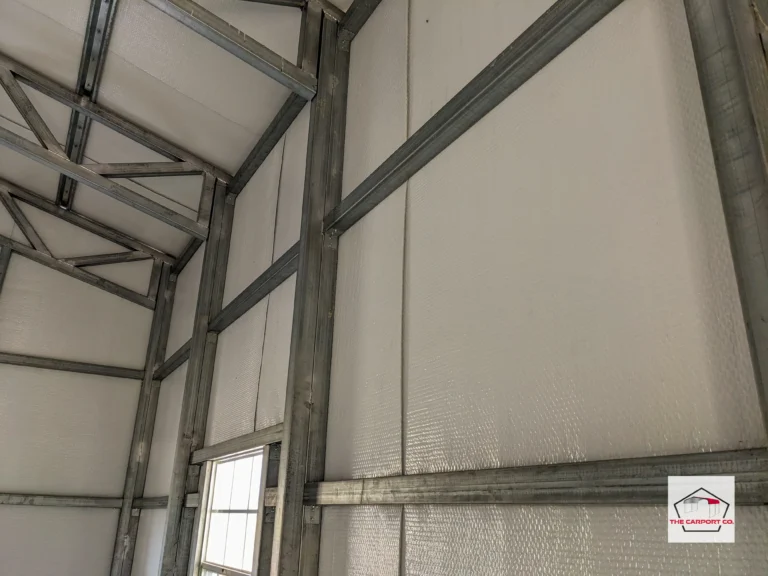
What is Carport Insulation?
Carport insulation is any type of insulation used on or in a carport used to reduce the flow of thermal energy. This includes climate control and temperature retainment, and can help to prevent severe hot and cold temperature swings that can lead to damaging your vehicle and valuables.
Why Insulating a Carport is Important
When insulating your carport, it’s easy to make mistakes that can compromise the effectiveness of your efforts. Here are the three biggest errors we see at The Carport Co.:
1. Stop Overheating, Fluid Thickening, and Dead Batteries
During hot summer months, the interior of your car can reach unbearable temperatures if left uninsulated. This not only affects the comfort of entering the vehicle but can also lead to overheating and potential damage to sensitive electronic components. In colder months, freezing temperatures can cause engines to struggle, batteries to fail, and fluids to thicken, making it difficult to start your vehicle.
2.Prevent UV Rays and Moisture Damage
Insulation plays a significant role in shielding your vehicles from harmful UV rays. Prolonged exposure can lead to fading paint, cracked dashboards, and deteriorated upholstery. By insulating your carport, you create a barrier that minimizes these risks. An insulated carport can help control moisture levels, preventing rust and corrosion from forming on your vehicles. This is particularly crucial for those living in humid climates or areas that experience heavy rainfall.
3. Reduce Vehicle Wear and Tear
Carport insulation can enhance the overall lifespan of your vehicles. By providing a stable environment free from extreme weather conditions, you can reduce wear and tear. This translates to fewer repairs and lower maintenance costs over time. Therefore, investing in carport insulation is not just about immediate comfort; it’s about ensuring your vehicles remain in excellent condition for years to come.
Benefits of Insulating a Carport
The benefits of insulating a metal carport extend beyond just temperature regulation. Here are a few more benefits to adding insulation to your carport:
Energy Efficiency
An insulated carport can help maintain a more stable temperature, which means that if you choose to heat or cool the space, your energy costs could see a reduction. This is particularly beneficial for those who use their carports for additional activities, such as a workshop or storage area, as it creates a more comfortable environment year-round.
Protection Against the Elements
Insulation on a carport can act as an effective barrier against rain, snow, and sleet, preventing water from pooling and causing potential damage to your vehicles. It also helps to keep dust and debris at bay, ensuring that your vehicles remain clean and free from contaminants that can harm their surfaces and mechanical systems. This means less time spent cleaning and maintaining your vehicles, allowing you to focus on enjoying them instead.
Increased Property Value
An insulated carport can add value to your property. Potential homebuyers often prioritize features that enhance convenience and protect their investments. By having an insulated carport, you not only improve your daily life but also make your property more attractive to future buyers. This investment can yield a significant return, proving that carport insulation is a wise choice for both current enjoyment and long-term value.
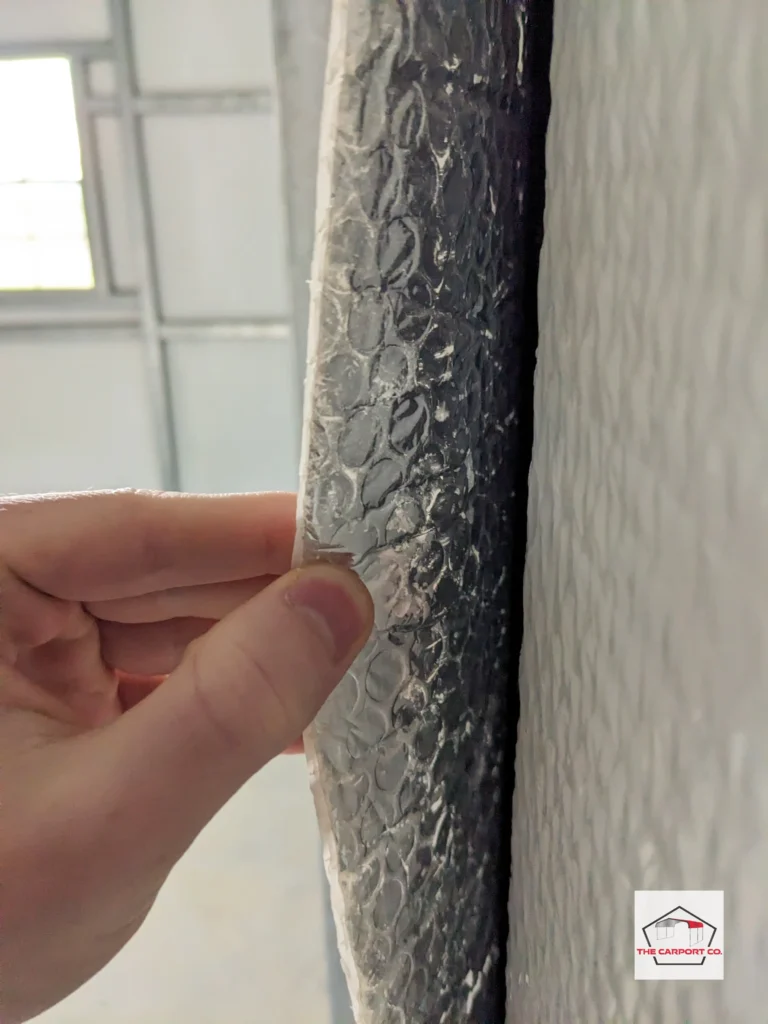
Types of Carport Insulation
There are various types of insulation that can be used on a carport or metal building, each with their own advantages and disadvantages, but the three most commonly used options are as follows:
Radiant Barrier Bubble (Reflective Foil) Insulation
Reflective foil (bubble) insulation is the most common insulation type for carports and metal buildings. It is the most affordable radiant barrier option at $1.50 per sqft and is great for reflecting heat in the summer, preventing frosting in the winter, and preventing moisture and condensation during heavy rainfall and in humid environments. Reflective foil insulation has an R value from R-3 to R-17.
Fiberglass Insulation
Fiberglass insulation isn’t offered by many manufacturers, but The Carport Co. is proud to offer it to our customers. Like bubble insulation, fiberglass is a great affordable insulation for carports. Fiberglass insulation cost ranges from $0.30 to $1.30 per inch per sqft. Fiberglass insulation has an R-value of 3.1 to 3.4 per inch.
Spray Foam Insulation
Spray foam is by far the best insulation option for metal buildings and carports, but it does come at a higher price, open cell spray foam starts around $1.50 per sqft per inch, and closed cell spray foam starts around $4 per inch per sqft. Open cell spray foam insulation offers an R-value of R-3.5 per inch. Closed cell spray foam insulation offers and R-value of R-7 per inch.
Foam Board Insulation
Foam board insulation is the best value insulation you can use for a metal buildings or carport. It offers many of the same benefits that spray foam insulation offers, but it’s much easier to DIY, and you can get it at a fraction of the price. Rigid foam board insulation ranges from $0.60 to $2.50 per sqft, with an average cost of $1.50 per sqft. Rigid foam board insulation offers an R-value between R-6.5 and R-6.8 per inch.
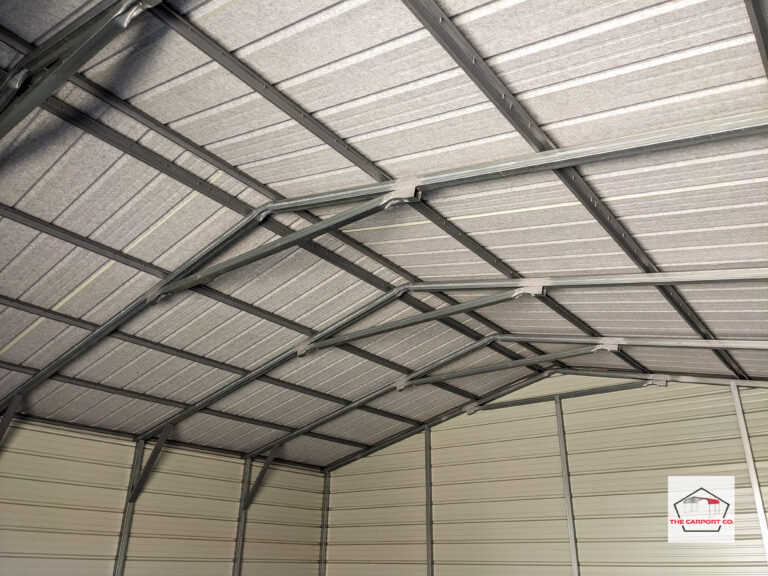
Moisture/Condensation/Vapor Barriers
Whilst not insulation perse, brands like CondenStop and Dripstop are a layer of felt that works as a moisture and condensation barrier. Moisture and condensation barriers like these are a great option if you live in a humid climate where moisture and sweating of your metal buildings is a concern. These barriers start around $1.49 per sqft and offer an R-value of R-0.3691.
How to Choose the Right Insulation Option for Your Carport
Selecting the right insulation material for your carport involves considering several factors, such as:
1. Local Climate Consideration
If you live in an area with extreme heat or cold, materials with high thermal resistance, such as foam board or fiberglass, may be more suitable. For those in milder climates, reflective insulation might suffice, especially if your focus is on keeping the carport cooler in the summer months.
2. Installation Process and Difficulty
Some materials, like fiberglass batts, may require more effort and expertise to install properly. If you are a DIYer, you might prefer materials that are easier to handle and install. Foam boards, for instance, can often be cut to size and fitted without the need for specialized tools. Reflective barriers are typically straightforward to install as well, requiring minimal effort to achieve effective results.
3. R-Value Per Dollar and Your Budget
While high-quality insulation materials may come at a higher upfront cost, they can save you money in the long run through energy savings and reduced maintenance costs. It’s important to weigh the initial investment against the long-term benefits. Researching different products and comparing their performance ratings will help you make an informed decision that aligns with both your financial and functional goals.
Maintaining and Cleaning Your Insulated Carport
Maintaining your insulated carport is crucial for ensuring its longevity and effectiveness.
Perform Regular Inspections
Regular inspections are essential to identify any potential issues, such as wear and tear or moisture accumulation. Check for signs of damage to the insulation, particularly after severe weather events. Addressing these issues promptly can prevent more extensive damage and ensure your insulation remains effective.
Keep Your Carport and Carport’s Insulation Clean
Dust, debris, and dirt can accumulate, potentially affecting the insulation’s performance. Use a broom or vacuum to remove loose particles and a damp cloth to wipe down surfaces. If you have insulated walls or ceilings, be cautious not to damage the insulation material while cleaning. If mold or mildew is detected, address it immediately using appropriate cleaning solutions to prevent further growth.
Stay on Top of Seasonal Tasks
During the fall, be diligent about clearing leaves and debris from your carport to prevent moisture buildup. In the spring, inspect for any signs of damage after winter weather. By keeping up with maintenance and cleaning, you can ensure that your insulated carport continues to protect your vehicles effectively year-round.
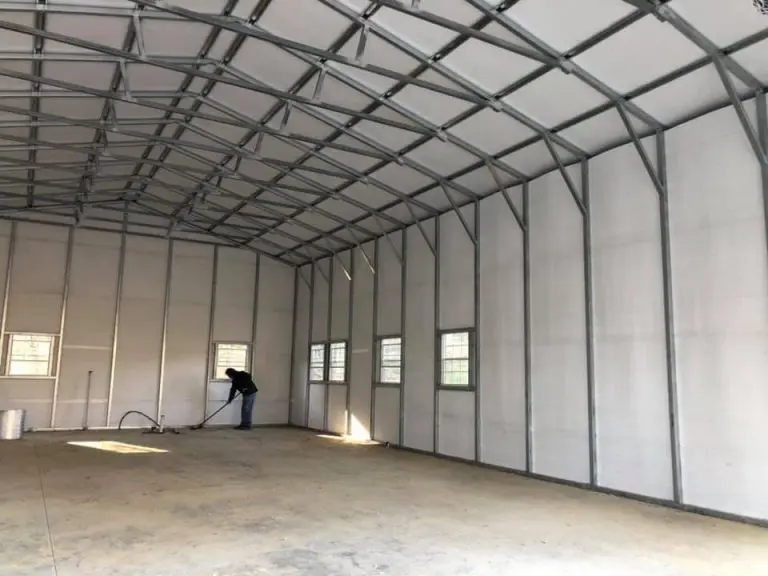
Professional Carport Insulation Services
While DIY insulation projects can be rewarding, sometimes it’s best to leave the job to the professionals. Hiring a specialized insulation contractor can ensure that your carport is insulated correctly and efficiently. Professionals have the experience and expertise to assess your specific needs, recommend the best materials, and perform the installation with precision. This can save you time and effort, allowing you to focus on other aspects of vehicle maintenance.
Research Carport Insulation Professionals
When looking for professional services, be sure to research contractors in your area. Read reviews, check credentials, and ask for quotes from multiple companies to ensure you get the best value for your investment. A reputable contractor will provide a detailed assessment of your carport and explain the insulation options available to you. They can also address any concerns you may have and suggest maintenance plans to keep your insulation in top shape.
The Carport Co. is proud to offer our team of professional carport insulation installers to you. If you’re looking to get a quote on your carport insulation project, please submit a quote request for carport insulation.
Invest in Good Warranties and Peace of Mind
Investing in professional services can also provide peace of mind. Many contractors offer warranties on their workmanship and materials, ensuring that you are protected against any future issues. This means you can enjoy the benefits of your insulated carport without worrying about the potential pitfalls of a DIY project. Ultimately, professional insulation services can enhance the longevity and effectiveness of your carport insulation, ensuring your vehicles remain protected for years to come.
Conclusion: The Importance of Investing in Carport Insulation for Long Term Vehicle Protection
In conclusion, investing in carport insulation is a vital step in ensuring the long-term protection and maintenance of your vehicles. The benefits are numerous, from regulating temperature and reducing energy costs to protecting against moisture and UV damage. By selecting the right materials and following effective insulation practices, you can create a safe haven for your vehicles, regardless of the season.
Moreover, maintaining your insulation and incorporating additional protective measures can further enhance the longevity and condition of your vehicles. Whether you choose to tackle the project yourself or hire professional services, the return on investment is clear. A well-insulated carport not only saves you money on repairs and maintenance over time but also adds value to your property.
Ultimately, by prioritizing carport insulation, you are making a proactive choice to safeguard your vehicles against the elements. This investment ensures that they remain in excellent condition, ready for your next adventure, and contributes to your overall peace of mind. Embrace the importance of carport insulation and enjoy the benefits it brings, knowing that your vehicles are protected all year round.
Choose The Carport Co. for Your Insulated Carport or Metal Building
At The Carport Co., we specialize in providing high-quality, insulated, pre-engineered steel buildings, including carports, camper covers, storage buildings, and much more. Whether you’re looking for a metal garage with an attached carport, an RV carport with a living area, or a steel framed structure for a workshop, our products meet the highest standards of quality and affordability. We would love to be given the opportunity to earn your business.
Frequently Asked Questions
Why do I need carport insulation?
Carport insulation prevents condensation and extreme temperature swings, which will ensure your vehicle remains in it’s factory condition for longer.
What is the best type of carport insulation?
The best insulation depends on your climate and budget. The best carport insulation in terms of R-value per dollar is rigid foam board insulation, but the overall best carport insulation you can buy is closed cell spray foam.
Do carports prevent windshield frosting?
Yes, whether you opt for insulation on your carport or not doesn’t matter, the carport will still prevent frosting of the windshield during the coldest months due to thermal radiation.
Can I install installation to my existing carport?
You can absolutely install insulation to your existing project if you are handy. The easiest type of carport insulation to install yourself is foam board insulation. We recommend rigid foam board insulation to all DIYers.
Will insulation make my carport energy efficient?
Yes, opting for carport insulation is the single most important addition you can put on a metal building or carport to make it more energy efficient. There’s almost not even a point in heating or cooling a metal building if you don’t have insulation.
Table of Contents
Ready to Begin Your Project?
Do you think The Carport Co. would be a good fit for you? We’d love to earn your business. Fill out the quote form, and one of our friendly representatives will be in touch with you shortly. We’re here to answer questions you may have, provide personalized recommendations, and get you an estimate on your project.
To speak with someone, call (888) 293-5588 or email [email protected].
Don’t miss out on the opportunity to enhance your property with a durable, versatile, and visually appealing metal structure. Contact The Carport Co. today and experience what we can do.
Visit our 3D Builder to design your own structure!
Get Your FREE Custom Quote
No-obligation, 100% FREE quote, delivered in minutes.
The Ultimate Buyer’s Guide is a collection of articles by The Carport Co. These articles have been catered to first time steel and metal carport, garage, and commercial building buyers. Our goal is to share as much information with customers as possible, to help make informed decisions, and ensure a customer doesn’t discover an addition they would have liked to added at the time of sale, but was not aware of the option’s existence.
Here is a preview of a few articles. To view the full Buyer’s Guide, please visit the Ultimate Buyer’s Guide page.

